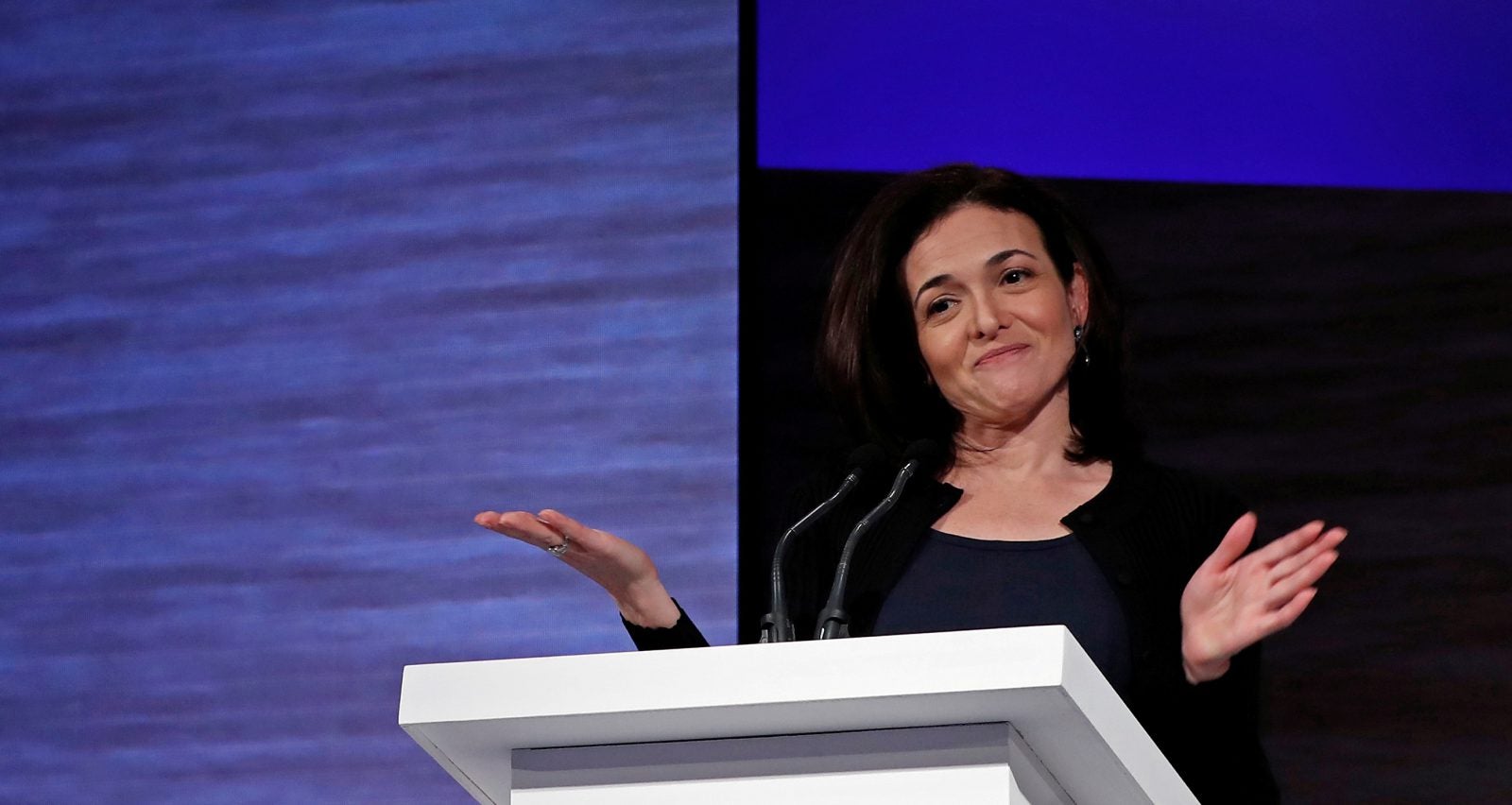Sheryl Sandberg has a plan for the 50% of male managers afraid to mentor women
Men are finally beginning to be held accountable for sexual harassment. And (surprise, surprise) many of them aren’t reacting so well.


Men are finally beginning to be held accountable for sexual harassment. And (surprise, surprise) many of them aren’t reacting so well.
Surely, if you’re a man, watching other men lose their power can be scary. Maybe you didn’t masturbate in front of her, or use a secret button to trap her in your office, but did you stare too long? Did that compliment come off too strong? Contemplating these questions is necessary and, most women will tell you, perfectly okay.
What’s not necessary, or remotely okay? Reacting to #MeToo by isolating yourself from the women you work with—an inclination which has become all too common, according to a new study conducted by the Sheryl Sandberg-founded women’s empowerment nonprofit LeanIn.Org and Survey Monkey.
“In the aftermath of #MeToo, as several powerful men have lost their jobs (good!) for harassing women, some men have chosen to react by adopting what’s called the Mike Pence rule – never having dinner alone with a woman other than your wife,” Sandberg wrote in a recent post on Facebook, where she is COO. “If men think that the way to address workplace sexual harassment is to avoid one-on-one time with female colleagues – including meetings, coffee breaks, and all the interactions that help us work together effectively – it will be a huge setback for women.”
Countless studies have shown that white men are more likely to receive mentorship than women, people of color, and gay men—a pattern that clearly predates #MeToo. They’ve also been more successful in finding mentors with more organizational clout, as this article in Harvard Business Review noted back in 2010. But the backlash to #MeToo threatens to make the playing field more uneven still.
LeanIn.Org and SurveyMonkey investigated the impact of #MeToo in the workplace by polling a nationally representative sample of nearly 9,000 adults employed in the US, via two online surveys.
The results were alarming: According to the surveys, nearly 50% of male managers across industries say they’re now uncomfortable participating in one or more common work activities with women, like working together one-on-one or socializing together. And the percentage of male managers who say they’re uncomfortable mentoring women has risen from 5% to 16%—meaning one in six male managers is uncomfortable mentoring a female colleague.
What’s more, senior men—those who typically have the most power to sponsor and promote junior employees—said they are 3.5 times more likely to hesitate to have a work dinner with a junior woman than a junior man, and five times more likely to hesitate to travel for work with a junior woman.
“The last thing women need right now is even more isolation,” Sandberg wrote in response to the findings. “Men vastly outnumber women as managers and senior leaders, so when they avoid, ice out, or exclude women, we pay the price.”
LeanIn.org has launched a new campaign in response called #MentorHer, to encourage executives to publicly promise to mentor women and foster female leadership talent. Among those to make the commitment thus far: Oath CEO Tim Armstrong, Netflix CEO Reed Hastings, LinkedIn co-founder Reid Hoffman, LinkedIn CEO Jeff Weiner, Airbnb CEO Brian Chesky, Coca-Cola CEO James Quincey, Disney CEO Bob Iger, and more. The roster also includes several female executives, such as GM CEO Mary Barra and Hearst chief content officer Joanna Coles.
The #MentorHer campaign could perhaps be viewed as a form of mentorship itself, for executives who feel wary now about their working relationships with women. Sandberg’s advice? “Men who want to be on the right side of this issue shouldn’t avoid women. They should mentor them.”
As for the men who still don’t feel comfortable dining alone with a female colleague, Sandberg says, “Fine. But make access equal: no dinners alone with anyone. Breakfast or lunches for all. Or group dinners only, nothing one-on-one. Whatever you choose, treat women and men equally.”
This story is part of How We’ll Win, a project exploring the fight for gender equality at work. Read more stories here.